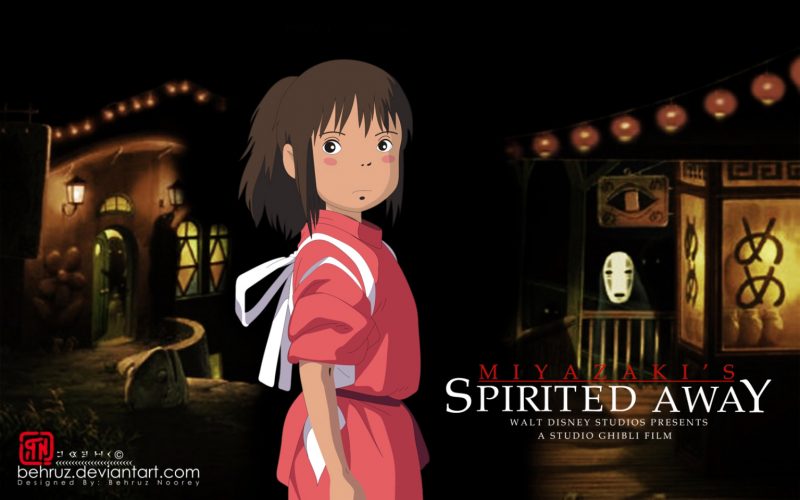Spirited Away (2001).
Arguably Hayao Miyazaki’s greatest skill is the way he is able to make us yearn for a place we’ve never even been, such is the transportative nature of his work as creator of some of the most cherished Japanese animated films ever made. There will never be a debate over his aptitude at this, but rather over which of his films does it better than all the others.
Inspired by the daughter of a friend (as is often the case; Miyazaki draws from the people around him habitually), the protagonist of what might be the most famous Studio Ghibli film, Spirited Away, is Chihiro, who is thrust into a magical realm both awe inspiring and terrifying. Miyazaki is the most capable living filmmaker at visualising that beautiful curse which infects all children, that of being both afraid and curious of so much at the same time. And maturity maybe, is being able to control this cascade of emotions. While on their way to their new home, Chihiro and her parents are stopped at a blockage as they drive up through the mountain, and before them sits a tunnel on the other side of which is an abandoned theme park.
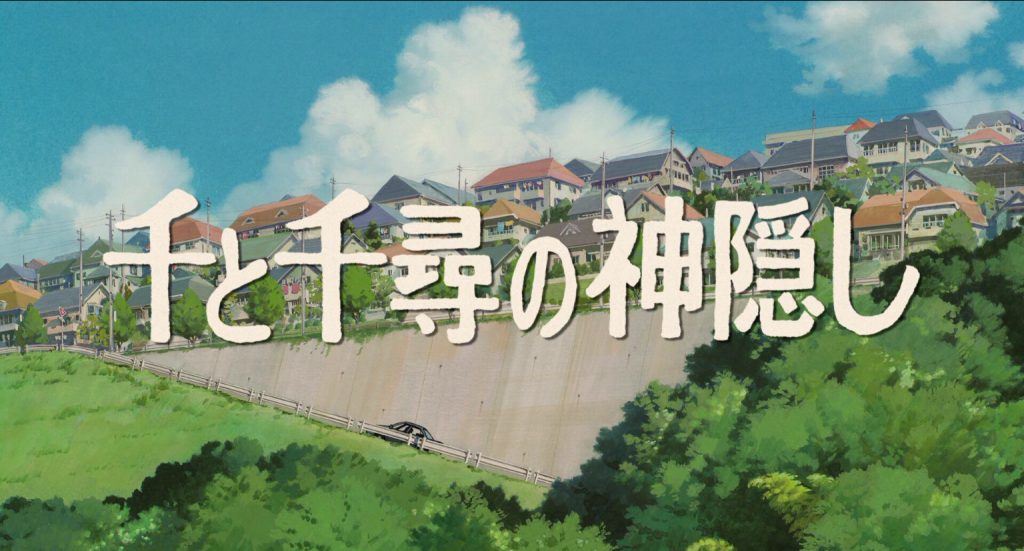
Chihiro embodies the often stubborn, needy, and yet determined persona of many children her age and is introduced at a rather troubling time in her life. She’s been ripped away from her school and her riends, forced to start anew because her father is offered a new job. She’s afraid of what lies within and on the other side of the tunnel but is even more afraid of being left behind, so she hesitantly accompanies her parents into its depths to explore what lies on the other side.
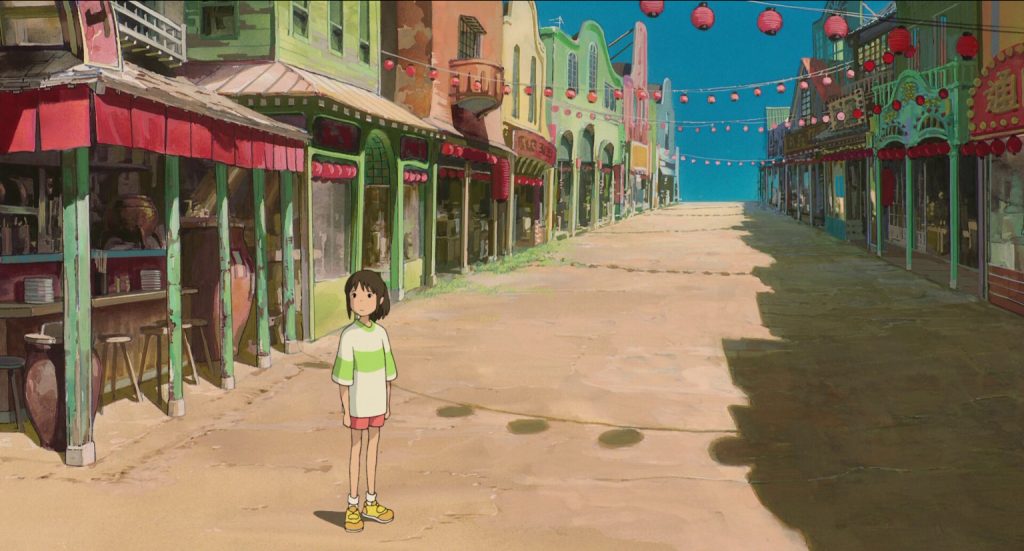
She is adamantly against the gluttony practiced by her parents when they stumble upon an unmanned stall full of freshly cooked meats and foodstuffs and begin to gorge themselves with the well-meaning promise of paying afterward. She slips away for a while and, as day becomes night, things start to get rather strange. She encounters a boy who aggressively tells her to get away, and when she returns to the food stall she’s horrified to discover two giant, grotesque pigs right where her parents had been. Spirits derived from Japanese Shinto folklore begin to appear throughout the town and Chihiro finds herself thrust into a parallel spirit world, and at the centre a bathhouse to which the spirits flock.
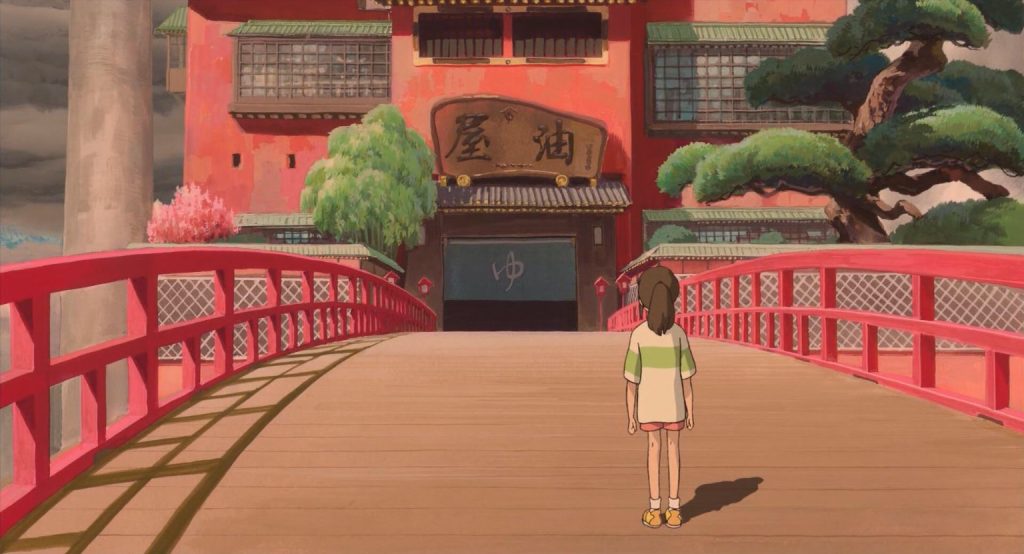
Miyazaki conjures that feeling of longing, not for the world itself, which is rather frightening, but for that innocent, excitable dread that accompanies adventure. Joe Hisaishi’s score is a masterpiece, pulling on chords as if they are the strings of our own hearts. Chihiro breaks down in the company of Haku, at first her only friend in this new realm. When the enormity of her situation gets the better of her, Hisaishi tugs with such delicate ferocity at those strings that they might just snap. Chihiro is treated as an outsider from the beginning, and regarded for her alluring odour by many of the creatures under the employ of the Bathhouse.
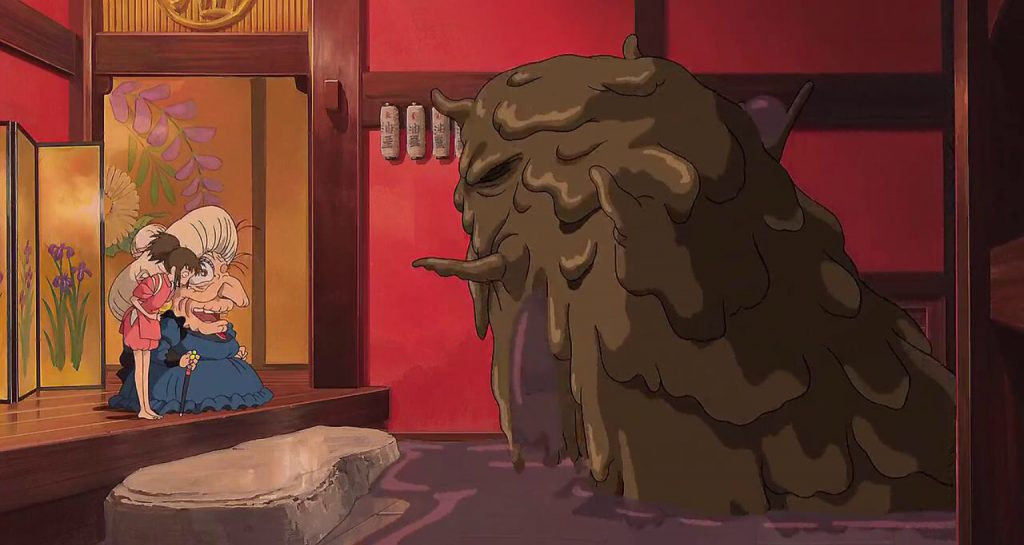
Chihiro meets Yubaba, the intimidating matriarch running the establishment, to try and procure a job. Before long Chihiro is working as a maid, welcoming patrons inside and creating more havoc than she’s probably worth. With every new character and every fresh interaction, something becomes clear; Chihiro is having an indelible affect on everybody she comes into contact with. This isn’t some display of magic, as is so often the case in Spirited Away, but rather it’s Miyazaki yet again bathing his narrative in the wonders of the real world. In this case, it’s the power of youth. It’s that joyous innocence that can wash over even the most cynical of hearts with new, reinvigorated perspective. Later, Chihiro’s desire to save Haku’s life is described as love, but it’s not the kind of love we’re often spoonfed. Its lack of romance only adds further merit.
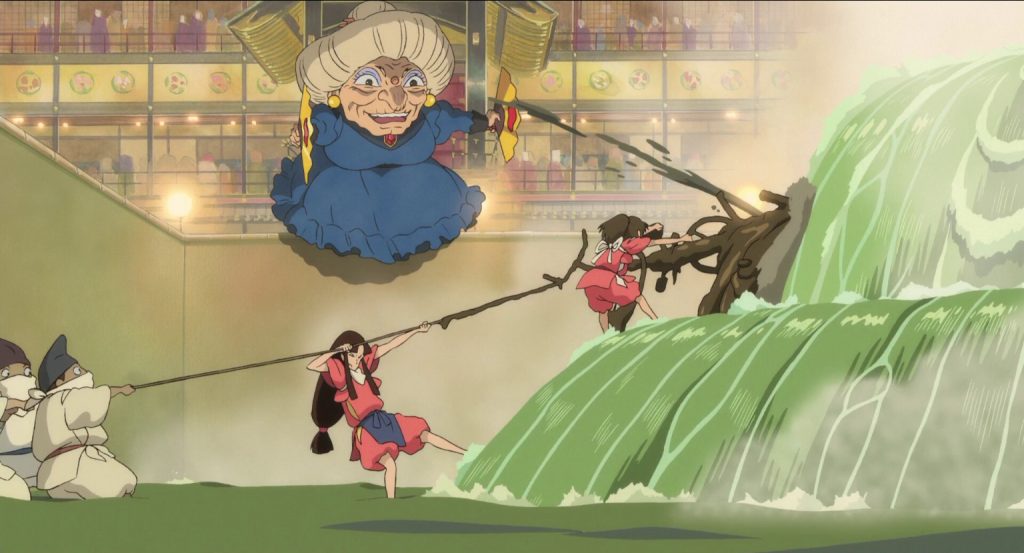
But Chihiro is not a child in the strictest sense. She’s at an awkward age, somewhere between childhood and adulthood, and the narrative treats her as such. She seems discontent and misunderstood by her parents as they drive toward their new home, but she winds up in a strange new place that she does not belong in soon after. She’s forced to obtain a job, and as part of her contract Yubaba takes her name from her. She’s literally forced to kill the kid within herself and assume responsibilities new and large. The entire film is driven by a dramatic dilemma; Chihiro must save her parents and return to the real world. By the end of the film, she achieves these things and so much more too. In the end she’s an entirely new person.
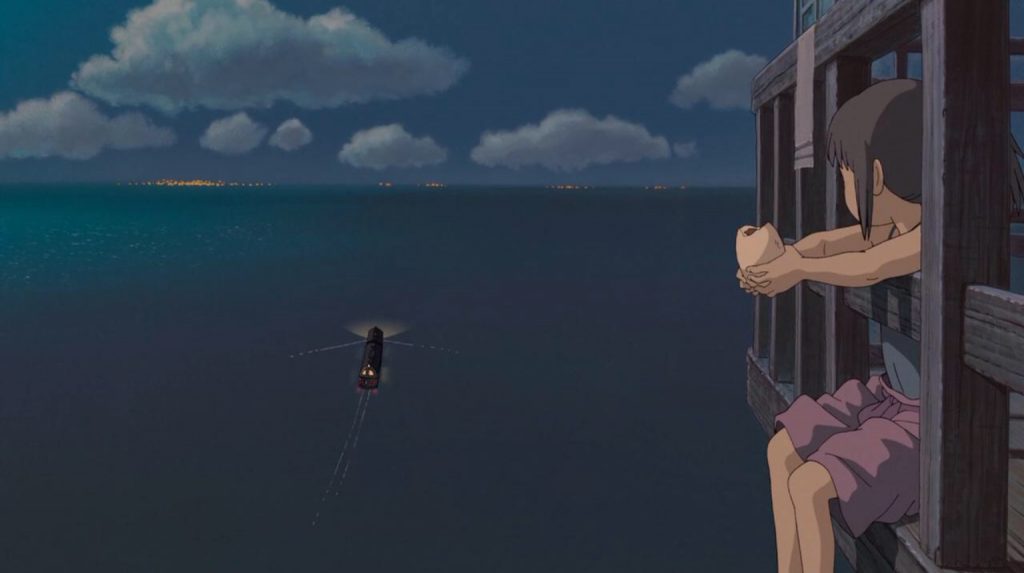
The greed of Chihiro’s parents, though not malicious, is not a coincidence, and the film casts a critical eye on the consumerism that’s bloated contemporary culture. The disused theme park at the beginning of the film exemplifies this; a victim of Japan’s then, still fairly recent, real-world economic slump in the mid-late ‘90s, the park is symbolic of the throwaway nature of consumerism and a somber relic of a once magical, although ultimately artificial place. This isn’t though to imagine the spirit realm and the Bathhouse as utopic; there is greed etched into its foundations. When No-Face enters, pouring gold from his palms in his search for Chihiro, the employees of the Bathhouse desperately scrap for every coin (the currency being wothless is a great irony). Yubaba, adorned in fine clothing and residing within her laughably eccentric office sitting over the top of everybody else at the building’s peak, is driven by one simple desire – profit is everything. So even the Shinto folklore-inspired spirit world has become infected by the demands and desires of modern economics and status.
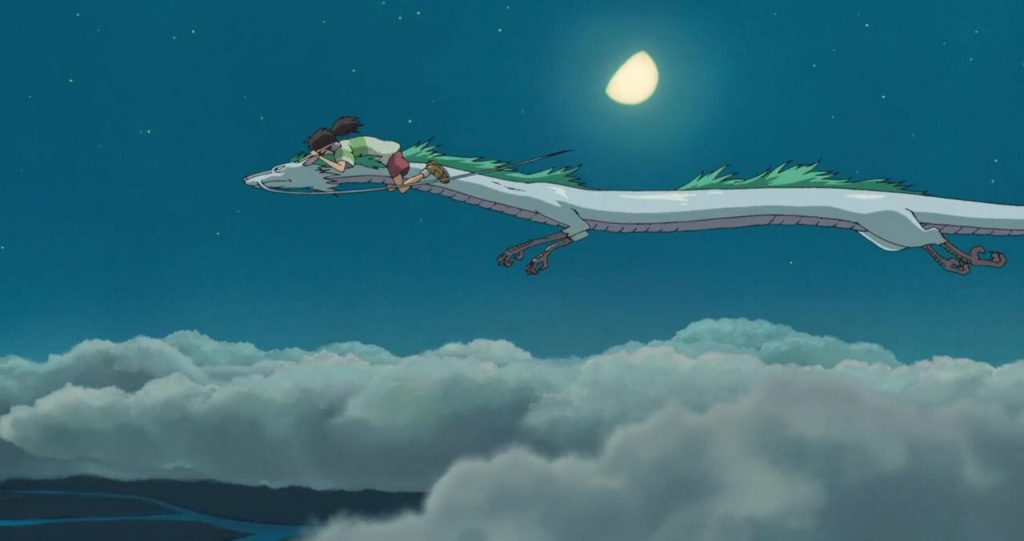
As such, No-Face is introduced as a rather placid creature before becoming tainted by the delights of the bathhouse. He consumes those with greed in their hearts and becomes a rampaging monster. To show affection for Chihiro, he makes offers in excess, as though it is the ultimate sign of love. The train ride in the third act offers a kind of calm reprieve from the chaos of the Bathhouse, and Chihiro observes the spirits around her as they exit the train onto a platform, vanishing on the descent into perhaps a final resting place.
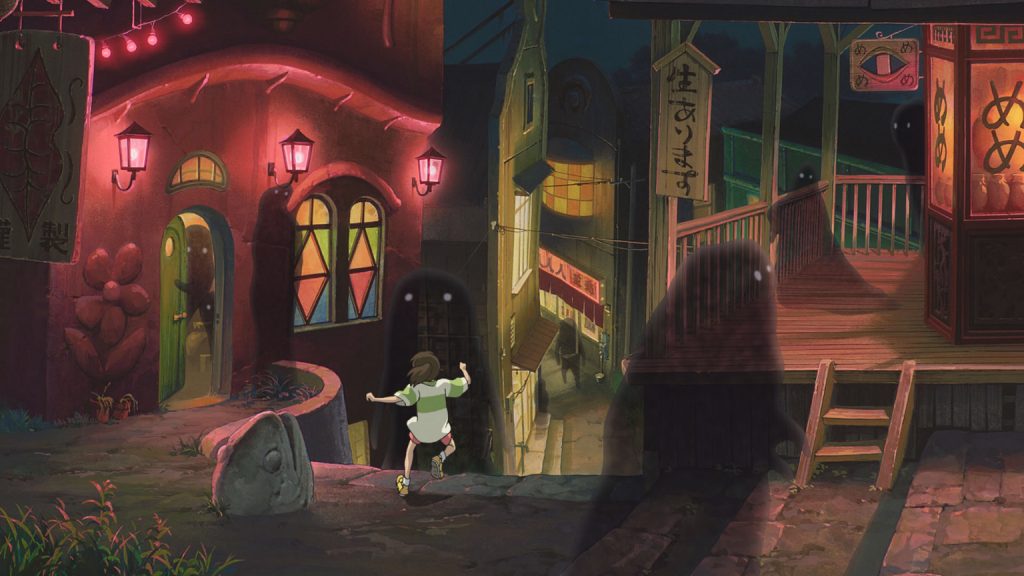
A realist might imagine that Yubaba and her employees will return to their same old way of life, but a more optimistic view might allow us the luxury of imagining that Chihiro really has made a difference. While we can extract plenty of meaning from the events of the film, isn’t Chihiro, after all, the heart and soul of the entire thing? Without allowing it to steal us away from a jaded view of the world for a short two hours, a cynical mind has little to gain from returning to, or discovering, Chihiro’s journey in Spirited Away. Instead, the film rewards the space we find in our hearts for both analysis and escape. If we allow it, we’ll be transported to a place that feels as real as anything we’ve experienced in our own skin. There is no definitive answer as to which of Miyazaki’s films best exemplifies his ability to entice our dormant, inner child to the surface, but there’s much to argue in favour of it being Spirited Away, a timeless masterpiece of the art form and an unforgettable, magical adventure.
Film ’89 Verdict – 10/10
Spirited Away and many other Miyazaki classics will be available on Netflix from Sunday March 1st (regional variances may apply).

